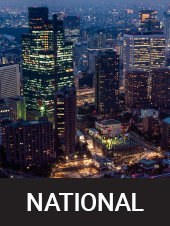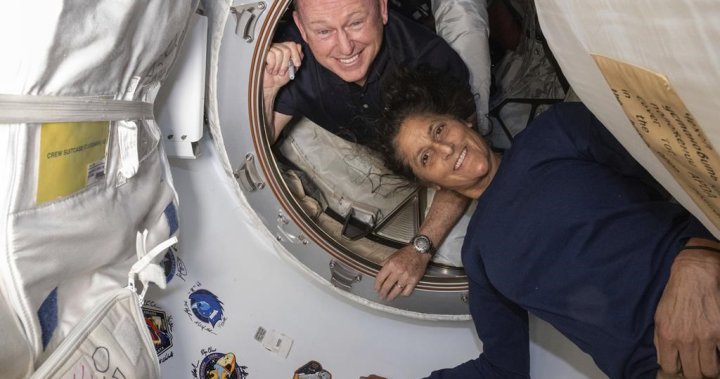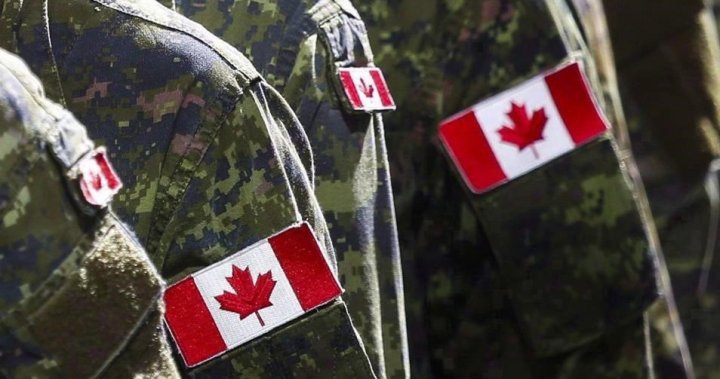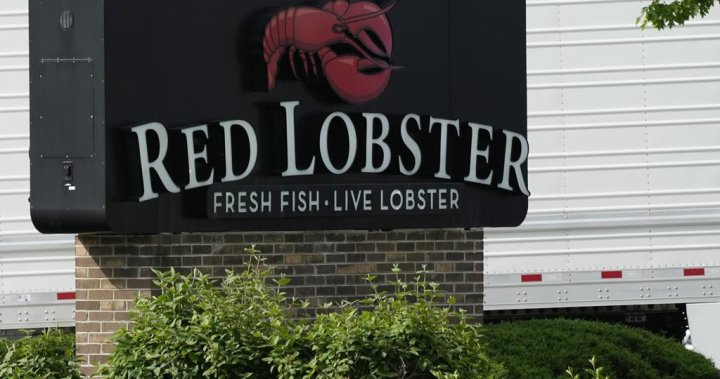The upcoming U.S. election is expected to be close, meaning every vote will count — including ballots sent from space.
NASA says all astronauts on the International Space Station will have the opportunity to vote in November’s election while in orbit around the globe, including the two-person crew that is currently stranded there after arriving aboard Boeing’s faulty Starliner capsule in June.
The two veteran astronauts, Butch Wilmore and Suni Williams, are now expected to return to Earth next February on a SpaceX spacecraft due to launch this month. That means they’ll miss the chance to vote in person, but NASA says special technology that’s been in place for over 20 years will still allow the pair to perform their civic duty.
“All U.S. astronauts aboard the International Space Station have the opportunity to exercise their right to vote in the upcoming general election,” a spokesperson told Global News.
“The process will be the same for any other crew member, in co-ordination with the county clerk office of the county they reside.”

Voting from space dates back to 1997, when Texas passed a bill that would accommodate astronauts on long-duration space flights, which were relatively new at the time. Most astronauts live in Texas so they can be close to NASA’s Johnson Space Center in Houston.

Get breaking National news
For news impacting Canada and around the world, sign up for breaking news alerts delivered directly to you when they happen.
That same year, NASA astronaut David Wolf became the first American to cast a vote from space while onboard Russia’s Mir Space Station.
The ISS was launched into orbit in 1998, and American astronauts have been able to vote while onboard ever since.
NASA says the process has essentially remained the same.
First, an encrypted electronic absentee ballot is uplinked to the astronauts through NASA’s space communications network — the same one that allows crew members to talk with family members and share data with mission control in Houston.
Astronauts then use the unique credentials sent to them by email to access their ballot, cast their vote and downlink it back to Earth.
NASA says the document flows by satellite through its White Sands Test Facility in New Mexico — a site normally used for testing rocket engines and potentially hazardous materials from space — and back to the Johnson Space Center.
The ballot is then sent to the county clerk specific to each astronaut’s address back on Earth. The clerk is the only other person able to access the encrypted document.
The process is similar to how Americans abroad vote absentee, which today is typically done by email or internet download.
However, the National Air and Space Museum says astronauts voting while in space will list their current address as “low-Earth orbit.”
Canadian astronauts don’t have the same opportunity, Elections Canada confirmed to Global News.
“Unfortunately, there’s currently no mechanism to allow astronauts to vote from space,” a spokesperson said in an email.
However, Elections Canada said depending on when their voyage begins, astronauts could apply for a special ballot at the start of an election period and vote “before they leave Earth’s atmosphere.”

The mission for Wilmore and Williams was supposed to last just eight days, as part of a test flight for Boeing’s new Starliner capsule.
But Starliner’s propulsion system suffered a series of glitches beginning in the first 24 hours of its flight to the ISS, triggering months of cascading delays. Five of its 28 thrusters failed and it sprang several leaks of helium, which is used to pressurize the thrusters.
The astronauts ended up in a holding pattern as engineers conducted tests and debated what to do about the flight back. In the meantime, Williams and Wilmore have been assisting the current crew of the ISS with its scientific work.
NASA ultimately decided to have the unmanned Starliner return to Earth on autopilot due to an ongoing risk of more problems mid-flight.
Wilmore and Williams will hitch a ride on a SpaceX Crew Dragon spacecraft that will launch this month for a routine mission and return to Earth in February. Two members of the four-person SpaceX team were asked to give up their seats for the stranded Starliner crew.
— with files from The Associated Press and Reuters
© 2024 Global News, a division of Corus Entertainment Inc.



